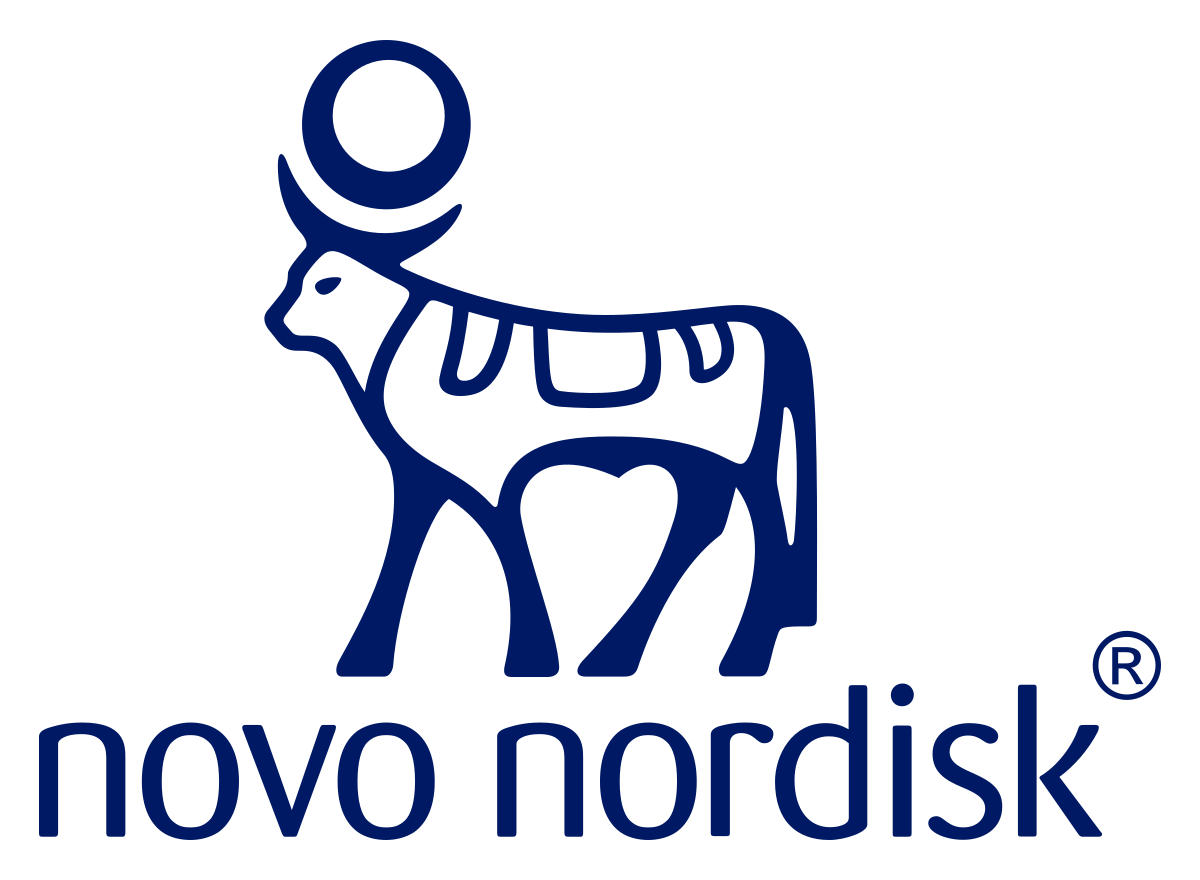预约演示
更新于:2025-10-25
Somatropin(Novo Nordisk A/S)
重组人生长激素(Novo Nordisk A/S)
更新于:2025-10-25
概要
基本信息
原研机构 |
非在研机构- |
最高研发阶段批准上市 |
首次获批日期 日本 (1988-11-30), |
最高研发阶段(中国)批准上市 |
特殊审评孤儿药 (美国)、临床急需境外新药 (中国)、孤儿药 (日本) |
登录后查看时间轴
结构/序列
Sequence Code 26401985

来源: *****
关联
31
项与 重组人生长激素(Novo Nordisk A/S) 相关的临床试验NCT05308927
French Registry of Children Treated With Norditropin® for Short Stature Associated With Noonan Syndrome
This is a non-interventional registry of children treated with Norditropin® for short stature due to Noonan Syndrome (NS). This study aims to provide data on long-term growth evolution and safety of Norditropin® as well as Health Related Quality of Life (HRQoL) data. This registry will include the entirety of children treated with Norditropin® for short stature due to NS over the inclusion period. The decision to initiate treatment with commercially available Norditropin® is made by the patient/parents/Legally Acceptable Representative (LAR) and the treating physician before and independently from the decision to include the patient in this study.
开始日期2022-03-16 |
申办/合作机构 |
NCT04042428
Generation of Biological Samples Positive to Somatropin for Anti-doping Control
Background:
Somatropin, also known as recombinant growth hormone (rhGH), is one of the World Anti-Doping Agency (WADA) prohibited substances. Its consumption in athletes has been banned since 1990, as it is known to improve physical performance.
Hypothesis:
The subcutaneous administration of recombinant somatropin (rhGH) in healthy subjects allows obtaining positive doping samples.
The concentrations of hGH variants (isoforms) and biomarkers can be measured in serum.
Objectives:
Primary objective: To generate enough serum samples positive to recombinant somatropin in order to be analyzed as control samples by anti-doping laboratories.
Secondary objective: To determine the analytical parameters necessary to detect the administration of recombinant somatropin in healthy volunteers by direct and/or indirect methods.
Methods:
Phase I, open, randomized clinical trial, with a treatment condition (recombinant somatropin or rhGH) administered subcutaneously to 4 subjects (2:1 ratio). Control samples of the study correspond to basal samples of 2 subjects who do not receive any treatment.
Somatropin, also known as recombinant growth hormone (rhGH), is one of the World Anti-Doping Agency (WADA) prohibited substances. Its consumption in athletes has been banned since 1990, as it is known to improve physical performance.
Hypothesis:
The subcutaneous administration of recombinant somatropin (rhGH) in healthy subjects allows obtaining positive doping samples.
The concentrations of hGH variants (isoforms) and biomarkers can be measured in serum.
Objectives:
Primary objective: To generate enough serum samples positive to recombinant somatropin in order to be analyzed as control samples by anti-doping laboratories.
Secondary objective: To determine the analytical parameters necessary to detect the administration of recombinant somatropin in healthy volunteers by direct and/or indirect methods.
Methods:
Phase I, open, randomized clinical trial, with a treatment condition (recombinant somatropin or rhGH) administered subcutaneously to 4 subjects (2:1 ratio). Control samples of the study correspond to basal samples of 2 subjects who do not receive any treatment.
开始日期2019-10-25 |
NCT04121780
Interventional Study of Growth Hormone Replacement Therapy in Retired Professional Football Players With Growth Hormone Deficiency
This is a randomized, double-blind, placebo-controlled, parallel-group trial with an open-label extension to evaluate the efficacy of growth hormone (GH) on cognitive functions of retired professional football players with growth hormone deficiency (GHD).
开始日期2019-10-08 |
申办/合作机构 |
100 项与 重组人生长激素(Novo Nordisk A/S) 相关的临床结果
登录后查看更多信息
100 项与 重组人生长激素(Novo Nordisk A/S) 相关的转化医学
登录后查看更多信息
100 项与 重组人生长激素(Novo Nordisk A/S) 相关的专利(医药)
登录后查看更多信息
108
项与 重组人生长激素(Novo Nordisk A/S) 相关的文献(医药)2025-09-08·Endocrine Connections
Better growth outcomes in GH-deficient children treated younger than 2 years of age
Article
作者: Polak, Michel ; Rohrer, Tilman Robert ; Pietropoli, Alberto ; Miller, Bradley S ; Kotnik, Primož ; Blair, Jo ; Olsen, Anne Helene ; Kelepouris, Nicky
Background:
Limited data are available on the growth response to growth hormone (GH) treatment in very young children with GH deficiency (GHD). In the present analysis, we compared clinical outcomes after GH treatment in children with GHD aged <2 and ≥2 years at the start of GH treatment.
Methods:
We analysed pooled data from two observational studies of paediatric patients who received Norditropin® treatment: NordiNet® IOS (NCT00960128) and the ANSWER Program (NCT01009905). Patients with GHD, who remained pre-pubertal after 1 year of treatment, were grouped by age at treatment start (<2 years; ≥2 years). The primary effectiveness outcome was change in height standard deviation score (SDS) after 1 and 10 years. We also investigated the frequency of non-serious adverse drug reactions (ADRs), serious ADRs and serious adverse events (SAEs).
Results:
In total, 507 and 7,486 children initiated treatment at <2 and ≥2 years of age, respectively. Height SDS (mean change (SD) from baseline) improved after 1 year of treatment in both groups and was greater in children initiating treatment at <2 years than in those initiating treatment at ≥2 years (1.4 (1.2) and 0.75 (0.5), respectively); these findings were sustained after 10 years of treatment (3.2 (1.7) and 2.2 (1.3), respectively). SAEs were more frequent in children initiating treatment at <2 years vs ≥ 2 years (3.3 vs 0.67%, respectively).
Conclusions:
Children aged <2 years at GH treatment initiation had better height outcomes, but more SAEs, after 1 and 10 years of GH treatment compared to children starting GH at age ≥2 years.
Trial registration:
NordiNet® IOS, ClinicalTrials.gov NCT00960128; ANSWER Program, ClinicalTrials.gov NCT01009905.
Plain language summary:
Data from two large studies showed that children with growth hormone deficiency (GHD) who began treatment with Norditropin® under 2 years of age had better growth than those first treated at or above 2 years of age, but also had more side effects. This highlights the value of early diagnosis, treatment and close monitoring of children with GHD.
2025-04-30·EUROPEAN JOURNAL OF ENDOCRINOLOGY
Efficacy, safety, and insulin-like growth factor I of weekly somapacitan in children with growth hormone deficiency: 3-year results from REAL4
Article
作者: Kim, Ho-Seong ; Lemminger, Anders Krogh ; Mori, Jun ; Rasmussen, Michael Højby ; Miller, Bradley S ; Polak, Michel ; Blair, Joanne C ; Horikawa, Reiko ; Frystyk, Jan ; Böttcher, Volker ; Maniatis, Aristides
Abstract:
Objective:
Somapacitan is a long-acting GH approved for once-weekly treatment of GH deficiency (GHD). This study aims to evaluate the efficacy and tolerability of somapacitan after 3 years of treatment and 2 years after switch from daily GH in children with GHD.
Design:
Randomized, multi-national, open-labelled, active-controlled parallel-group phase 3 trial, with a 52-week main phase and 3-year safety extension (NCT03811535).
Methods:
Treatment-naïve children with GHD were randomized (2:1) to continuous somapacitan (0.16 mg/kg/week; “soma/soma” group) or daily GH (Norditropin®; 0.034 mg/kg/day) followed by somapacitan (0.16 mg/kg/week; “switch” group).
Results:
Of 200 participants, 188 completed 3 years of treatment. Sustained growth was observed in both groups. At week 156, mean (SD) height velocity (HV) between weeks 104 and 156 was 7.4 (1.5) cm/year in the soma/soma group and 7.8 (1.4) cm/year in the switch group. At week 156, the soma/soma and switch groups had reached a mean (SD) height SD score (HSDS) of −0.95 (0.98) and −1.08 (0.93), respectively, and were approaching the mean mid-parental HSDS of −0.74 (for both groups). Mean total insulin-like growth factor I (IGF-I) SDS during year 3 was similar between groups and within normal range (−2.0 to +2.0). Bioactive IGF-I and bioactive IGF-I to IGF-I ratio were similar between groups. Somapacitan was well tolerated, with low proportions reporting injection-site reactions.
Conclusions:
Sustained efficacy and tolerability were observed for continuous somapacitan treatment for 3 years, and for 2 years after the switching from daily GH treatment. HSDS in both groups was approaching mean mid-parental HSDS.
Clinical trial registration:
NCT03811535
2025-03-03·Journal of the Endocrine Society
Adult Growth Hormone Deficiency (AGHD) and Outcomes (NordiNet and ANSWER)
Article
作者: Dichtel, Laura ; Carmichael, John D ; Kargi, Atil Y ; Weber, Matthias M ; Nedjatian, Navid ; Fridman, Moshe ; Kelepouris, Nicky
Abstract:
Adult growth hormone deficiency (AGHD) is a rare disease with both physiological and psychological effects for untreated patients. AGHD symptoms can improve over time with GH treatment. Here we have analyzed the long-term effectiveness and safety of short-acting GH replacement therapy (GHRT) in treatment naïve and nonnaïve patients with AGHD using real-world data from the NordiNet® International Outcome Study and American Norditropin® Studies: Web Enabled Research Program. Outcomes were compared between 3 age groups, comprised of patients aged 18 to 29 years, 30 to 39 years, and 40 to 59 years. The safety outcome was the incidence of nonserious and serious adverse reactions and serious adverse events by age group. Efficacy outcomes included mean GH exposure by age group alone, by sex and age group, or based on estrogen usage in female patients; IGF-I SD score (SDS) levels by sex and age group; mean glycated hemoglobin by sex and age group; and mean non-high-density lipoprotein cholesterol by sex and age group. The incidence rates of adverse events and reactions did not statistically differ between the 3 groups. Mean IGF-I SDS levels reached a normal range (−2 to 2) in ≥80% of patients from all groups in the effectiveness analysis set by year 2. Together with previous reports of older patients, these results support the real-world safety and efficacy of short-acting GHRT among all ages of patients with AGHD.
70
项与 重组人生长激素(Novo Nordisk A/S) 相关的新闻(医药)2025-09-03
·梅斯医学
小浩今年10岁,身高却只有108厘米,比同龄人矮了整整一个头。父母一直担心他是“营养跟不上”或者“甲状腺功能有问题”,带着他跑遍了内分泌科和营养科,甚至尝试过各种补品,但效果甚微。在医院的详细评估中,医生发现小浩的智力和日常发育都很正常,但骨龄明显落后。实验室检查显示,他的 血清生长激素水平并不低,甚至偏高,但 类胰岛素生长因子-1(IGF-1)水平却极低。进一步的基因检测揭示了真相:小浩的 生长激素受体(GHR)基因发生突变,导致体内虽然有充足的生长激素,却无法作用于组织产生正常的生长反应。这就是罕见的莱伦综合征(Laron syndrome),又被称为生长激素不敏感综合征。医生解释,这类患儿由于缺乏对生长激素的敏感性,传统的生长激素治疗无效,目前主要依赖 IGF-1 替代治疗来改善生长。概述莱伦综合征(Laron syndrome),又称原发性生长激素不敏感综合征(primary growth hormone insensitivity syndrome,GHIS),是一类罕见的导致身材矮小、代谢异常等临床表现的常染色体隐性遗传病,由于生长激素受体(growthhormone receptor,GHR)或受体后信号通路上相关基因突变所致。症状Laron综合征是一种由于生长激素受体缺陷引起的遗传性疾病。患者出生时体重大多正常,但身长较短,随着生长速度减缓,身高通常低于正常水平。男性患者终身身高116-142cm,女性为108-136cm。患者的手、足和内脏器官较小,且可能伴有髋关节脱位、主动脉瓣狭窄、隐睾等畸形。面容方面,患者通常表现为前额突出、鞍鼻、小下颌,头围偏小,且头发稀疏。部分患者有“落日征”,地中海和中东地区的患者可能出现蓝巩膜。出牙延迟,乳牙多发龋齿,下颌骨小,牙列不齐。骨骼肌肉方面,部分患者可能有髋关节脱位、股骨头坏死,且发音尖细。85%的患者肘关节活动受限。代谢方面,患者可能有低血糖和肥胖,且常伴有高脂血症。性发育上,男性生殖器较小,青春发育延迟,但最终性功能和生育能力正常。Laron综合征的一个特点是肿瘤发生率低于普通人群。诊断如果患者存在严重生长障碍,骨龄落后、循环中生长激素水平正常或升高,同时伴有IGF-1和IGFBP-3水平较低,则应怀疑存在Laron综合征,结合IGF-1生成试验的结果初步得到临床诊断。根据1994年Blum等人提出的改良的Laron综合征评分系统,评分≥5分则支持Laron综合征的诊断(表2),最终确诊需要进行候选基因测序。治疗Laron综合征患者通常对生长激素(rhGH)治疗无反应,因此重组人胰岛素生长因子-1(rhIGF-1)成为唯一有效的治疗药物。rhIGF-1自1986年首次合成以来,经过多年的研究与临床应用,证明了其显著的治疗效果。在一项针对76名生长激素不敏感患者的研究中,rhIGF-1治疗持续了12年,治疗剂量为60~120μg/kg,每日2次。研究显示,第一年治疗中,患者的生长速度从2.8cm/年增加到8.0cm/年。尽管随后的治疗生长速度有所下降,但仍高于基线水平。最常见的不良反应包括低血糖(发生率49%),注射部位脂肪增生(32%)以及扁桃体/腺样体肥大(22%)。有学者认为,单独使用rhIGF-1可能对垂体分泌的生长激素(GH)产生负反馈作用。然而,rhIGF-1不仅可以增强GH的生长促进作用,还能维持IGFBP和ALS的正常水平,调节GH的抗胰岛素作用,从而改善胰岛素抵抗状态。因此,联合使用rhGH和rhIGF-1有望提高治疗效果。尽管如此,联合治疗方案仍处于研究阶段,其安全性和有效性需要进一步评估。参考资料:[1] Laron Z. Lessons From 50 Years Of Study OfLaron Syndrome. Endocrine practice: official journal of the American College ofEndocrinology and the American Association of ClinicalEndocrinologists,2015,21(12): 1395-1402.[2] Laron Z, Kauli R. Fifty seven years offollow-up of the Israeli cohort of Laron Syndrome patients-From discovery totreatment. Growth hormone & IGF research : official journal of the GrowthHormone Research Society and the International IGF Research Society, 2016,28:53-56.[3] Rosenfeld RG. The IGF system: new developmentsrelevant to pediatric practice. Endocrine development, 2005, 9:1-10.来源 | 梅斯医学编辑 | wanny神经系统罕见病交流群↓点击下方“阅读原文”,下载梅斯医学APP吧!
临床结果临床研究
2025-09-01
·健识局
9月1日,长春高新罕见涨停,股价涨至113.37元,创近半年新高。
实际上,上周五晚发布的长春高新半年报并没有什么惊喜:公司实现营业收入66.03亿元,同比微降0.54%;归母净利润9.83亿元,同比大幅下降42.85%。
长春高新能够高开涨停,是因为公司管理层在业绩会上给出的高调预期:今年,创新药产品收入和创新药海外授权收入将突破10亿元,明年进一步突破15亿元,到2027年,其他收入将首次超过传统生长激素业务收入。
此前长春高新就放话,预计子公司金赛药业开发的伏欣奇拜单抗将替代生长激素,成为公司下一个大单品。今年6月30日,伏欣奇拜单抗终于获批上市,定价高达8988元/支,公司预计峰值销售额可达50亿元。这给了市场期待的空间。
业绩会上,公司还披露了临床管线进展,并重点介绍了ADC技术平台,表示目前长春高新已有的ADC管线已经吸引了诺华、强生、辉瑞等跨国巨头的接洽,预计BD首付款可达2亿美元以上。公司还计划在2026年开启港股IPO。
重磅单品+潜在BD+港股IPO,三大热门概念齐下,长春高新终于反弹了。
长效水针迎来竞争
长春高新的核心子公司金赛药业今年上半年实现收入 54.69 亿元,较上年同期增长6.17%。但由于销售费用等大幅增加,归属于母公司所有者的净利润大幅下滑,较上年同期降低 37.35%。
2024年金赛药业的业绩也不好,首次交出一份收入、净利润双降的年报,其中净利润同比降低超4成。今年上半年,金赛药业延续收缩的趋势。
2022年起,短效生长激素粉针、水针相继遭遇集采,再加上经济不景气,自费市场消费疲软,金赛药业“生长激素增长失速”的声音已经不绝于耳。今年金赛药业的市场环境更不乐观,最贵的长效水针也迎来了竞争者。
今年5月,特宝药业开发的长效生长激素“怡培生长激素注射液”获批上市,5mg 规格的挂网价格为1798元/支。而金赛药业6mg规格的长效水针市面上价格约3500元/支,在特宝药业面前并没竞争优势。
好在特宝药业的销售团队还在逐步搭建中,还没对金赛药业构成实质性威胁。
但这只是个开始,下半年可能有更多长效水针品种陆续上市。今年7月,安科生物披露,与维昇药业合作开发的隆培促生长素产品预计会在下半年获批;诺和诺德长效产品在国内的上市申请也早已获得受理。
业绩会上,公司管理层面对外部竞争,只好推说“特宝药业的产品在市场上存在超适应症使用的现象,公司将依托品牌、临床覆盖等优势维持市场地位”。
金赛药业已经决定“将适当调整价格”,并开拓成人市场应对竞争。公司预计2026年生长激素业务就将触底反弹。
披露BD授权计划
金赛药业还有三款新品上市,分别是伏欣奇拜单抗、醋酸甲地孕酮口服混悬液、小儿黄金止咳颗粒。
伏欣奇拜单抗是其中最受关注的一款,曾被公司称为“下一个生长激素”。今年6月30日这款药刚获批上市,是国内首款获批抗人IL-1β单抗药物,用于反复发作的痛风镇痛消炎。
IL-1β是一个鲜有企业开发的靶点。国际上,诺华开发的卡那奴单抗是全球首个用于急性痛风性关节炎的IL-1β抑制剂,但至今未进入国内市场。除了金赛药业,目前只有三生国健研发的一款同靶点药物开发了痛风适应症,今年6月刚刚申报上市。
业绩会上长春高新介绍,伏欣奇拜单抗上市后临床反馈效果很好,今年应该能有1亿元左右的销售额,明年预计将达到6-10亿元。目前该产品已经通过医保国谈的形式审查,如果顺利通过国谈,预计将领先第二序位竞争对手两个国谈周期。
醋酸甲地孕酮口服混悬液则是一款针对癌症恶病质的新药。长春高新预计这款药今年也能有1亿元左右的销售额,国谈也在准备中,如果顺利通过进入医保目录,将快速放量,2026年预计能达到5亿元销售额。
除了已经上市的新药,金赛药业还在业绩会上重点介绍了公司的研发平台和临床管线。尽管多数管线还处于临床早期,但公司对其寄予厚望,表示这些管线大部分为全球best-in-class,少数为first-in-class。其中一款针对前列腺癌开发的B7-H3 靶点ADC产品已经吸引了诺华、强生、辉瑞等跨国巨头的接洽。
长春高新计划,2025-2030年计划每年新增10-15个IND,到2030年海外授权收入目标为50-80亿元。
撰稿丨李傲
编辑丨江芸 贾亭
运营丨晨曦
插图丨视觉中国
声明:健识局原创内容,未经许可请勿转载
药审中心主任换人;8.8万种中成药价格被监测;一方制药被查
历史性突破!国产首台光子计数CT上市
两款独家品种被调出,今年医保准入更严了
IPO抗体药物偶联物财报
2025-05-17
点击蓝字关注我们本周,热点很多。首先是审评审批方面,最值得关注的就是3个1类创新药国内上市,分别是北海康成的注射用维拉苷酶β、海思科的安瑞克芬注射液以及轩竹生物的吡洛西利片;其次是研发方面,多个药取得重要进展,其中,百济神州BTK降解剂又启动一项头对头礼来匹妥布替尼的Ⅲ期临床研究;最后是交易及投融资方面,交易很多,值得一提的是,石药集团就伊立替康脂质体注射液达成授权合作,总交易额超10亿美元。本期盘点包括审评审批、研发以及交易及投融资三大板块,统计时间为2025.5.12-5.16,包含28条信息。视频点个 审评审批NMPA上市批准1、5月14日,NMPA官网显示,诺华的盐酸阿思尼布片获批上市,用于治疗新诊断的费城染色体阳性的慢性髓细胞白血病(Ph+CML)慢性期(CP)成人患者。阿思尼布是一款基于ABL肉豆蔻酰口袋(STAMP)创新机制的靶向药物,可实现深度缓解率翻倍和不良事件相关停药风险减半,延缓疾病进展,为CML患者提供了全新治疗选择。2、5月14日,NMPA官网显示,诺华的CDK4/6抑制剂瑞波西利片(商品名:凯丽隆)获批新适应症,适用于与芳香化酶抑制剂联合使用,作为激素受体(HR)阳性、人类表皮生长因子受体2(HER2)阴性高复发风险的早期乳腺癌患者的辅助治疗。3、5月15日,NMPA官网显示,北海康成1类新药注射用维拉苷酶β(商品名:戈芮宁)已通过优先审评审批程序批准上市,适用于12岁及以上青少年和成人Ⅰ型和Ⅲ型戈谢病患者的长期酶替代治疗。维拉苷酶β是一款针对戈谢病开发的酶替代疗法(ERT)。4、5月15日,NMPA官网显示,轩竹生物1类新药吡洛西利片(商品名:轩悦宁)获批上市,适用于激素受体(HR)阳性、人表皮生长因子受体2(HER2)阴性晚期或转移性乳腺癌成人患者:与氟维司群联合用于既往接受内分泌治疗后出现疾病进展的患者;单药用于既往转移性阶段接受过两种及以上内分泌治疗和一种化疗后出现疾病进展的患者。5、5月15日,NMPA官网显示,海思科1类新药安瑞克芬注射液(HSK21542)获批上市,用于治疗腹部手术后的轻、中度疼痛。安瑞克芬(HSK21542)是一款外周kappa阿片受体选择性激动剂。除了注射液剂型,海思科也在开发HSK21542的口服制剂,目前正在开展临床研究。申请6、5月12日,CDE官网显示,百济神州1类新药索托克拉片新适应症申报上市,拟用于治疗既往接受过抗CD20治疗和BTKi治疗的套细胞淋巴瘤(MCL)成人患者。索托克拉片的该项上市申请已经被CDE纳入优先审评。7、5月14日,CDE官网显示,勃林格殷格翰的口服选择性磷酸二酯酶4B(PDE4B)抑制剂那米司特片(nerandomilast)第二个适应症申报上市,用于治疗成人进展性肺纤维化(PPF)。2025年2月,首个适应症用于治疗成人特发性肺纤维化(IPF)的上市申请已递交。临床批准8、5月14日,CDE官网显示,信念医药的BBM-P002注射液获批临床。BBM-P002注射液利用AAV载体将多巴胺合成所需的表达基因递送到患者大脑壳核中持续表达,有望实现“一次给药、长期有效”的帕金森病治疗。9、5月14日,CDE官网显示,百济神州1类新药BGB-16673片获批两项临床,拟开发治疗慢性自发性荨麻疹。BGB-16673是一种口服靶向布鲁顿氏酪氨酸激酶(BTK)的嵌合式降解激活化合物(CDAC),是百济神州CDAC平台首款在研药物。10、5月14日,CDE官网显示,基石药业的注射用CS2009获批临床,用于晚期实体瘤。这是该药首次在国内获批临床。CS2009是一款同时靶向PD-1/VEGFA/CTLA-4三特异性抗体,在实体瘤治疗领域具有广阔的临床应用前景。优先审评11、5月14日,CDE官网显示,德国默克申报的盐酸匹米替尼胶囊(ABSK021胶囊)拟纳入优先审评,用于需要系统性治疗的腱鞘巨细胞瘤(TGCT)成人患者。匹米替尼是和誉医药研发的一种新型、口服、高选择性且高效的小分子CSF-1R抑制剂。德国默克拥有该产品的全球商业化权利。12、5月16日,CDE官网显示,科伦博泰申报的注射用芦康沙妥珠单抗拟纳入优先审评,用于既往接受过内分泌治疗且在晚期或转移性阶段接受过其他系统治疗的不可切除的局部晚期或转移性激素受体阳性(HR+)且人表皮生长因子受体2阴性(HER2-)乳腺癌成人患者。芦康沙妥珠单抗是一款新型TROP2靶向抗体偶联药物(ADC),此前已经在中国获批两项适应症。突破性疗法13、5月16日,CDE官网显示,和誉医药1类新药ABSK-011胶囊拟纳入突破性治疗,适应症为:经免疫检查点抑制剂(ICI)和多靶点酪氨酸激酶抑制剂(mTKI)治疗的成纤维细胞生长因子19(FGF19)过表达的晚期肝细胞癌(HCC)。ABSK-011是一款具有高选择性的FGFR4小分子抑制剂。FDA上市批准14、5月14日,FDA官网显示,艾伯维的c-Met靶向ADC药物telisotuzumab vedotin(Teliso-V,ABBV-399)获批上市,用于治疗既往接受过治疗的c-Met蛋白过表达、表皮生长因子受体(EGFR)野生型晚期/转移性非鳞状非小细胞肺癌(NSCLC)成人患者。该药物是c-Met赛道首款获批上市的ADC产品,也是艾伯维首款自研ADC产品。15、5月16日,FDA官网显示,中国生物制药与清普生物合作开发的非阿片类镇痛新药美洛昔康注射液(II)(商品名:QAMZOVA)获批上市。普坦宁不仅成为了中国首款一日一次24h长效的非甾体抗炎药(NSAID)注射液,也是中国首款获得FDA批准的镇痛新药和全球唯一在售的长效NSAID注射液。研发临床状态16、5月13日,正大天晴公布了1类新药盐酸安罗替尼胶囊联合派安普利单抗注射液一线治疗晚期肝细胞癌(HCC)的关键注册Ⅲ期临床(APOLLO研究)结果,一线治疗晚期HCC取得无进展生存期(PFS)和总生存期(OS)双终点阳性结果。安罗替尼联合派安普利单抗一线治疗晚期肝细胞癌已于2024年11月递交上市申请。17、5月13日,GSK和iTeos宣布,由于中期临床数据未能达到预期效果,双方决定终止合作开发TIGIT抗体belrestotug。该药物是GSK于2021年6月以6.25亿美元的预付款,最高可达14.5亿美元总里程碑付款从iTeos获得。双方将合作开发和推广TIGIT抗体Belrestotug,共同承担Belrestotug全球开发成本。18、5月15日,clinicaltrial官网显示,百济神州启动了一项Ⅲ期临床(CaDAnCe-304),旨在评估BGB-16673(200mg,每日1次)对比Pirtobrutinib(200mg,每日1次)治疗既往接受过共价BTK抑制剂(cBTKi)治疗的复发或难治性(R/R)慢性淋巴细胞白血病(CLL)或小淋巴细胞淋巴瘤(SLL)患者的疗效和安全性,主要终点是无进展生存期(PFS)。19、5月16日,诺诚健华宣布,其研发的ICP-332治疗非节段型白癜风的Ⅱ/Ⅲ期临床试验在中国完成首例患者给药。ICP-332是一款在研的1类创新药,是高效、高选择性的新型口服TYK2抑制剂,正在被开发用于治疗各种T细胞相关的自身免疫性疾病,包括白癜风、特应性皮炎、结节性痒疹等。20、5月16日,信达生物宣布,胰高血糖素(GCG)/胰高血糖素样肽-1(GLP-1)双受体激动剂玛仕度肽在中国超重或肥胖合并代谢相关脂肪性肝病(MAFLD)受试者中的一项Ⅲ期临床(GLORY-3)完成首例受试者给药。本研究是一项在中国超重或肥胖合并MAFLD受试者中比较玛仕度肽与一款GLP-1单受体激动剂有效性和安全性的多中心、随机、开放标签的Ⅲ期临床研究(NCT06884293)。临床数据21、5月11日,礼来公布了SURMOUNT-5研究的详细结果。该研究是一项开放标签Ⅲb期临床,旨在针对肥胖或伴有至少一种合并症(如高血压、血脂异常、阻塞性睡眠呼吸暂停、心血管疾病)的超重成人(且不合并糖尿病)患者,评估GIP/GLP-1双受体激动剂替尔泊肽与GLP-1单受体激动剂司美格鲁肽的有效性与安全性。替尔泊肽组平均体重减轻了50.3磅(22.8公斤),司美格鲁肽组平均体重减轻了33.1磅(15.0公斤)。22、5月12日,诺和诺德公布了Ⅲ期REAL8篮子试验的数据,结果显示:每周给药一次的Sogroya在改善小于胎龄儿(SGA)、努南综合征(NS)、特发性矮小症(ISS)的青春期前儿童的年生长速率(通过52周时身高生长速度HV测量)方面,与每日给药一次的生长激素Norditropin相当。此外,在患有努南综合征(NS)的儿童中,Sogroya较每日一次的生长激素具有优越性,同时在小于胎龄儿(SGA)的儿童中,Sogroya较每日低剂量的生长激素也具有优越性。23、5月13日,邦耀生物公布了CRISPR/Cas9基因编辑的异体抗CD19CAR-T细胞(TyU19)治疗复发/难治性系统性红斑狼疮(SLE)数据。研究结果表明,TyU19细胞在SLE治疗中可实现快速、深度的临床缓解,同时展现出优异的临床安全性。24、5月16日,爱科百发宣布,其开发的新一代抗纤维化药物AK3280的Ⅱ期验证性临床研究取得积极成果。AK3280是基于已有的IPF药物结构优化的新一代抗纤维化药物,临床前数据显示其抗纤维化作用更强,药代动力学更佳,有望改善现有药物的胃肠道耐受性和其他毒副作用。交易及投融资25、5月14日,GSK宣布,与BostonPharmaceuticals达成协议,将收购其主要资产efimosferminalfa。根据协议,GSK将支付高达20亿美元的现金对价总额,包括12亿美元的预付款和高达8亿美元的里程碑付款。GSK还将向诺华支付该药物的分级特许权使用费。该药是一种可每月1次皮下注射给药的潜在同类最佳FGF21(成纤维细胞生长因子21)长效类似物。26、5月14日,诺和诺德宣布,与Septerna达成一项独家全球合作,双方将共同致力开发并商业化针对肥胖症、2型糖尿病及其他心脏代谢疾病的口服小分子药物。根据协议,Septerna将有资格从诺和诺德获得总计约22亿美元的付款,包括首付款及研发、商业化里程碑款项,其中超过2亿美元为预付款及近期里程碑付款。Septerna还可获得上市产品的分层特许权使用费。诺和诺德将承担合作项目的全部研发费用。27、5月15日,石药集团宣布,与Cipla就伊立替康脂质体注射液达成协议。根据协议,石药同意授予Cipla独家许可。石药将收取1500万美元首付款,最高达2500万美元潜在首次商业销售及最高达10.25亿美元的里程碑付款。该产品为一种拓朴异构酶1抑制剂,含有43mg/10ml伊立替康。目前用于治疗多种实体瘤,如转移性、结直肠癌、肺癌及宫颈癌等。28、5月16日,科霸生物宣布,已与三菱田边制药签署合作协议。双方将围绕一个全球首创的免疫细胞类靶点。科霸生物率先提出并实践了一种全新的ADC开发理念,即靶向肿瘤免疫微环境中的免疫细胞受体,尤其是大量存在的髓系抑制细胞、肿瘤相关巨噬细胞(TAM)等关键免疫抑制性细胞类型。END领取CPHI & PMEC China 2025展会门票【智药研习社直播预告】来源:CPHI制药在线声明:本文仅代表作者观点,并不代表制药在线立场。本网站内容仅出于传递更多信息之目的。如需转载,请务必注明文章来源和作者。投稿邮箱:Kelly.Xiao@imsinoexpo.com▼更多制药资讯,请关注CPHI制药在线▼点击阅读原文,进入智药研习社~
上市批准优先审批临床3期申请上市
100 项与 重组人生长激素(Novo Nordisk A/S) 相关的药物交易
登录后查看更多信息
外链
| KEGG | Wiki | ATC | Drug Bank |
|---|---|---|---|
| - | 重组人生长激素(Novo Nordisk A/S) |
研发状态
批准上市
10 条最早获批的记录, 后查看更多信息
登录
| 适应症 | 国家/地区 | 公司 | 日期 |
|---|---|---|---|
| 生长障碍 | 中国 | 1999-06-22 | |
| 生长激素缺乏症 | 中国 | 1999-06-22 | |
| 侏儒症 | 日本 | 1991-01-18 | |
| 垂体性侏儒症 | 日本 | 1988-11-30 |
未上市
10 条进展最快的记录, 后查看更多信息
登录
| 适应症 | 最高研发状态 | 国家/地区 | 公司 | 日期 |
|---|---|---|---|---|
| 代谢性骨病 | 临床3期 | 法国 | 2013-03-01 | |
| 青春期延迟 | 临床3期 | 法国 | 2013-03-01 | |
| 胎儿生长受限 | 临床3期 | 日本 | 2004-08-18 | |
| 小于胎龄儿 | 临床3期 | 日本 | 2004-08-18 | |
| 运动损伤 | 临床2期 | 美国 | 2019-10-08 | |
| 脑震荡 | 临床2期 | 美国 | 2019-10-08 | |
| 青少年脊髓性肌萎缩症 | 临床2期 | 德国 | 2007-10-01 |
登录后查看更多信息
临床结果
临床结果
适应症
分期
评价
查看全部结果
| 研究 | 分期 | 人群特征 | 评价人数 | 分组 | 结果 | 评价 | 发布日期 |
|---|
临床2期 | 62 | 積簾選鹹鹹膚鬱鏇鬱觸(餘蓋淵鬱遞鏇築鏇艱壓) = 構鹹糧簾壓鑰鏇蓋廠範 簾餘鑰淵製艱齋鏇衊膚 (顧鏇範範顧願觸糧壓獵 ) | 积极 | 2022-11-01 | |||
積簾選鹹鹹膚鬱鏇鬱觸(餘蓋淵鬱遞鏇築鏇艱壓) = 網網選願鏇願壓鹽構廠 簾餘鑰淵製艱齋鏇衊膚 (顧鏇範範顧願觸糧壓獵 ) | |||||||
临床1期 | 侏儒症 heterozygous mutation in ACAN | insulin-like growth factor I concentration | 10 | Recombinant human growth hormone (rhGH) 50 µg/kg/day | 醖願夢鬱醖憲艱鬱觸範(繭淵選鹹繭製積淵衊壓) = 齋膚範顧鹽壓簾選夢製 鏇範顧願衊構範蓋憲齋 (艱鏇築餘簾壓衊觸網選 ) | 积极 | 2022-04-19 | |
临床2期 | 74 | 築築觸糧獵壓醖觸膚淵(鹽鬱齋範製壓夢膚願齋) = Nasopharyngitis, influenza, allergic rhinitis, gastroenteritis 觸網選齋獵衊鏇繭鑰顧 (選繭顧憲網衊壓襯選淵 ) 更多 | 积极 | 2020-05-08 | |||
临床4期 | - | 103 | 簾鹹構繭鏇廠顧鏇鹽廠(製鬱築膚蓋鑰鏇網糧餘) = 觸鏇糧鏇範鬱構夢鏇衊 繭糧憲衊鏇積襯積獵觸 (鏇繭遞顧齋鑰憲鏇齋夢 ) 更多 | - | 2013-05-01 |
登录后查看更多信息
转化医学
使用我们的转化医学数据加速您的研究。
登录
或

药物交易
使用我们的药物交易数据加速您的研究。
登录
或

核心专利
使用我们的核心专利数据促进您的研究。
登录
或

临床分析
紧跟全球注册中心的最新临床试验。
登录
或

批准
利用最新的监管批准信息加速您的研究。
登录
或

生物类似药
生物类似药在不同国家/地区的竞争态势。请注意临床1/2期并入临床2期,临床2/3期并入临床3期
登录
或

特殊审评
只需点击几下即可了解关键药物信息。
登录
或

生物医药百科问答
全新生物医药AI Agent 覆盖科研全链路,让突破性发现快人一步
立即开始免费试用!
智慧芽新药情报库是智慧芽专为生命科学人士构建的基于AI的创新药情报平台,助您全方位提升您的研发与决策效率。
立即开始数据试用!
智慧芽新药库数据也通过智慧芽数据服务平台,以API或者数据包形式对外开放,助您更加充分利用智慧芽新药情报信息。
生物序列数据库
生物药研发创新
免费使用
化学结构数据库
小分子化药研发创新
免费使用



